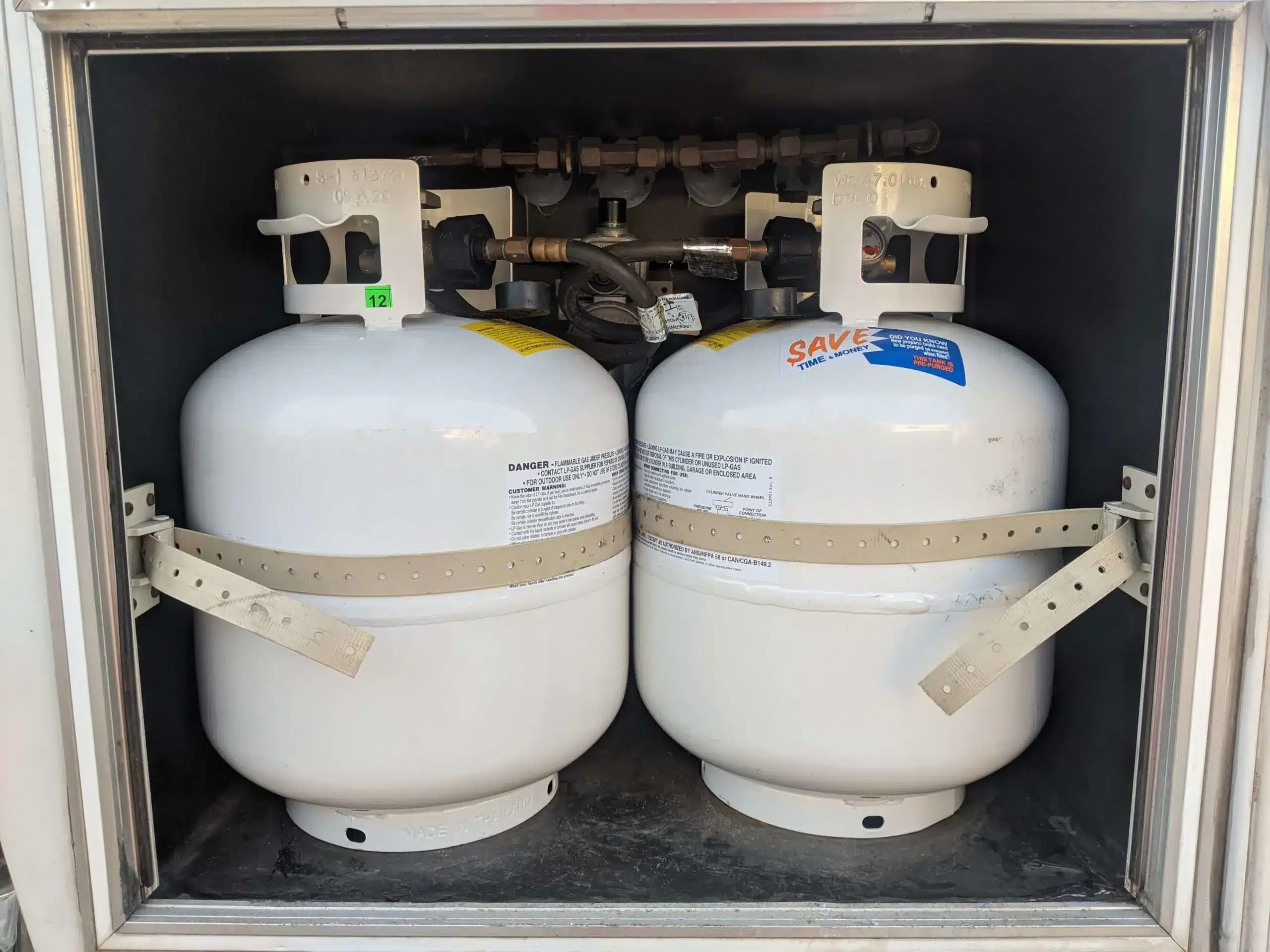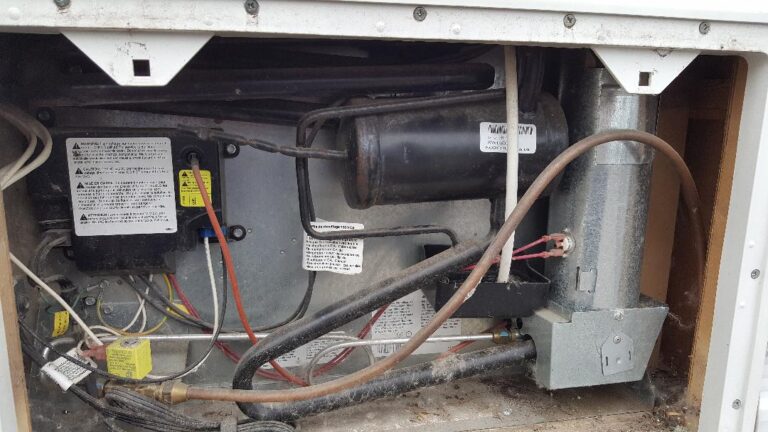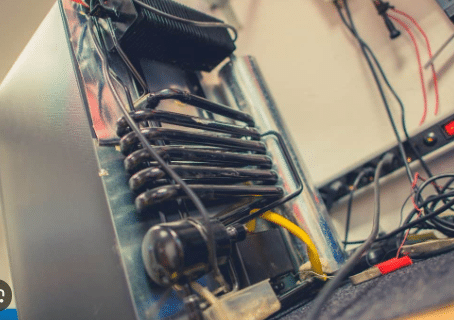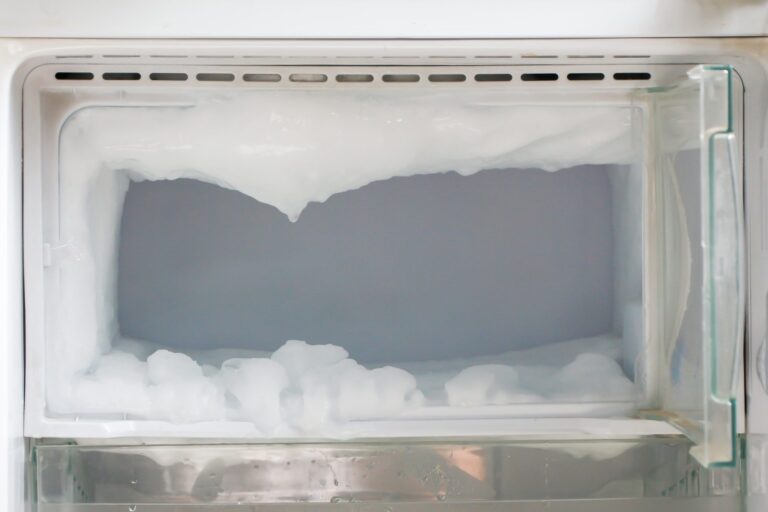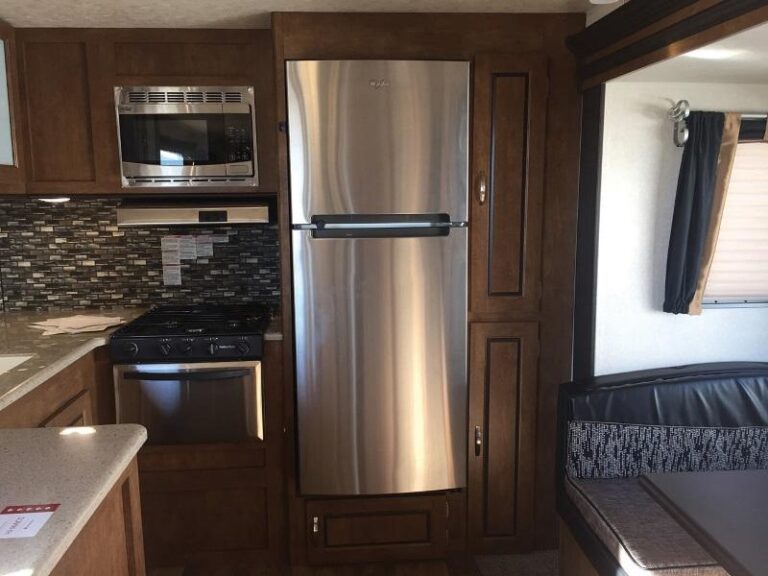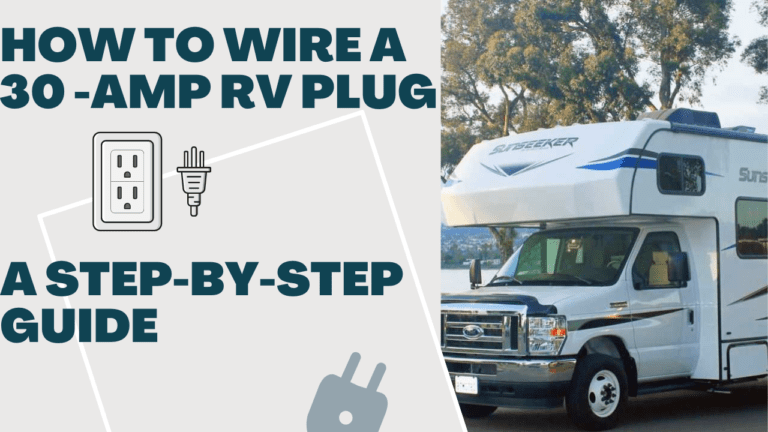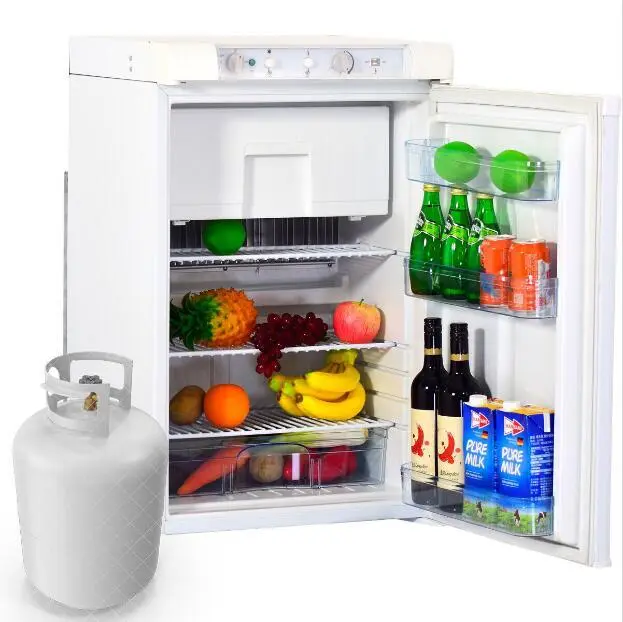Can I Run My RV Refrigerator on Propane While Driving
Yes, you can run your RV refrigerator on propane while driving. Many RV refrigerators have a propane mode that allows them to operate while the vehicle is in motion.
This feature is particularly useful for keeping your food fresh during long drives or when you don’t have access to electrical hookups. However, there are some important safety considerations to keep in mind:
- Propane Safety: Ensure that your propane system is in good condition, and there are no leaks. Proper ventilation is crucial to prevent the accumulation of propane gas, which can be dangerous.
- Turn off Propane When Refueling: It’s essential to turn off the propane system when refueling your RV or when driving through tunnels, as some areas may have restrictions on propane use in these situations.
- Obey Local Regulations: Be aware of any local regulations or restrictions in the areas where you’re traveling. Some places might have rules against using propane while driving.
- Level Your RV: For optimal refrigerator performance, it’s a good practice to keep your RV as level as possible, especially when running the refrigerator on propane.
RV Refrigerator Operation Modes: Understanding Propane, Electric, and Auto
When it comes to keeping your food fresh and your beverages cold while traveling in your RV, your refrigerator is an essential appliance. Most modern RV refrigerators offer different operation modes, including propane, electric, and auto, each with its own set of advantages and considerations. and I’ll dive into the various modes, with a particular focus on the propane mode – how it operates, when it’s suitable, and the benefits it brings to your RVing experience.
Propane Mode: A Closer Look
How Propane Mode Works: In propane mode, the RV refrigerator utilizes liquid propane (LP) gas as the primary energy source for cooling. The propane is ignited in the refrigerator’s burner assembly, which heats an ammonia-based solution. As this solution evaporates, it absorbs heat from the refrigerator’s interior, creating a cooling effect.
When Is Propane Mode Suitable? Propane mode is ideal for situations where you don’t have access to electrical hookups or when you’re boondocking, camping in remote areas, or on the move. It allows you to maintain the freshness of your food and beverages, even during extended periods without electricity.
Benefits of Propane Mode:
- Energy Independence: Propane mode enables you to operate your RV refrigerator without relying on electrical power sources. This is especially useful when you’re in areas without hookups, preserving your food and beverages even during off-grid adventures.
- Efficiency: Propane is an efficient energy source for cooling, making it suitable for long drives or when you’re parked in places where electricity isn’t readily available.
- Food Preservation: Propane mode helps you keep perishable items fresh, minimizing food waste and ensuring you have a steady supply of chilled items throughout your journey.
- Backup Option: Propane mode serves as a backup in case of power outages at campgrounds or RV parks. If the electrical hookup fails, you can switch to propane mode to maintain the refrigerator’s cooling function.
Propane Mode Considerations:
- Safety: Always prioritize propane safety. Regularly inspect your propane system for leaks, ensure proper ventilation, and never operate the propane system while refueling or in enclosed spaces.
- Leveling: To optimize the performance of your RV refrigerator in propane mode, ensure that your RV is level. Proper leveling helps the ammonia-based cooling system function efficiently.
- Local Regulations: Be aware of any local regulations regarding propane use while driving or in specific areas. Some tunnels, ferries, or campgrounds might have restrictions on propane usage for safety reasons.
Does RV Refrigerator use a Lot of Propane
Even me, as an RV enthusiast wondered about the propane consumption of their refrigerators, especially when boondocking or camping in remote locations.
I figured out the answer to this question varies based on the specific model of the refrigerator, its size, efficiency, and the settings you use. After few research here and there, I’ll tell you the factors influencing propane consumption in RV refrigerators and provide specific data for popular models like Dometic and Norcold, giving you a clearer understanding of what to expect in terms of propane usage.
Propane Consumption Factors in RV Refrigerators:
- Size and Efficiency: Larger refrigerators generally consume more propane than smaller ones, but efficiency plays a crucial role. Modern RV refrigerators are designed to be energy-efficient, which helps reduce propane consumption.
- Usage Settings: The temperature setting you choose for your refrigerator affects how often the cooling system runs. A higher setting might lead to more frequent cycling and increased propane consumption.
- Weather Conditions: Ambient temperature impacts how hard the refrigerator needs to work to maintain the desired temperature inside. Hot weather may cause the refrigerator to run more often, leading to higher propane usage.
- Frequency of Opening: Every time you open the refrigerator door, cold air escapes, and the system needs to work to cool it down again. Frequent door openings can result in increased propane consumption.
Specific Propane Consumption for Popular RV Refrigerator Models:
While specific propane consumption can vary based on the factors mentioned above, let’s take a look at some approximate propane consumption data for popular RV refrigerator models from Dometic and Norcold. Keep in mind that these numbers are estimates and can change based on individual usage and conditions.
Dometic RV Refrigerators:
- Dometic DM2652: This 6-cubic-foot refrigerator is a popular model in many RVs. It typically consumes around 1-1.5 pounds of propane per day, assuming normal usage and ambient temperature.
- Dometic RM3962: This 9.0-cubic-foot refrigerator, commonly found in larger RVs, may consume between 1.5-2.5 pounds of propane per day under similar conditions.
Norcold RV Refrigerators:
- Norcold N3150: A smaller 3.7-cubic-foot model, commonly used in compact RVs, may consume around 0.7-1.0 pounds of propane per day.
- Norcold N841: This 7.5-cubic-foot refrigerator, found in many mid-sized RVs, could use approximately 1-1.5 pounds of propane daily.
It’s crucial to remember that these estimates are general guidelines. Actual propane consumption may differ based on how frequently you open the refrigerator, the outside temperature, and the specific usage patterns during your RV trips.
Tips for Managing Propane Consumption in Your RV Refrigerator:
- Keep the Door Closed: Minimize the frequency of opening the refrigerator door to reduce energy consumption.
- Pre-Cool Items: Pre-chill food and beverages before placing them in the fridge to reduce the initial workload on the cooling system.
- Monitor Temperature Settings: Find a balance between keeping your items cold and conserving propane. Avoid setting the temperature lower than necessary.
- Maintain Propane System: Regularly inspect and maintain your RV’s propane system to ensure it operates efficiently, reducing wastage.
In conclusion, while some scenarios allow the RV fridge to run off the battery while driving, it’s essential to understand your specific RV’s power capabilities and the limitations of the fridge’s power consumption. Utilizing propane mode, pre-cooling the fridge, and monitoring battery levels are key strategies to ensure that your RV fridge remains in optimal operating condition, whether you’re on the road or parked at your destination.

